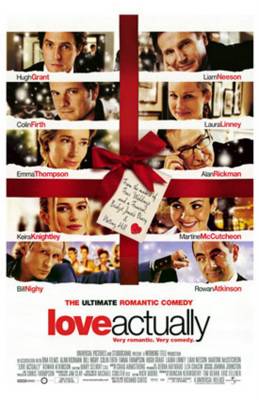Colleen Firth

Colin Firth in Love Actually

- If I suddenly speak like a british, I am sure my friends will be saying "Pauline, stop faking it!"
- My sis friend has been staying in Australia for about 10 years, he don't have any so-called Australian accent
So, why bother? I think I only tried talking like a British once or twice and I went back to my own Malaysian accent.
Accent are clues to where people were born and where they grew up. Although some people may change the way they speak during their lifetimes, most people still carry some trace of their dialect origins. And if I am to speak with a british accent, which region should I copy?
Cockney English or Queen's English?Cockney English is the broadest form of London local accent. It shows the working class accent of Londoners. While Queen's English or King's English, depending on who is the ruler at that time, can be traced back to the 16th and 17th century. It is ideally thought that the monarch's usage of the language should be a model in speech and writing. But current Queen's English is not what it used to be. Research compared how HRH pronounced certain words over the last 40 years. They discovered that 'estuary English' had influenced those cultured vowels, making Her Majesty altogether a little more common.
- Estuary English was coined by linguist David Rosewarne in 1984. It is characterised by using 'w' rather than 'l' is words such as milk or bill; glottal stops; and exaggerating the ends of words ending in 'y'? reallee, or lovelee. Being used by young people in Essex and Kent.


0 Comments:
Post a Comment
<< Home